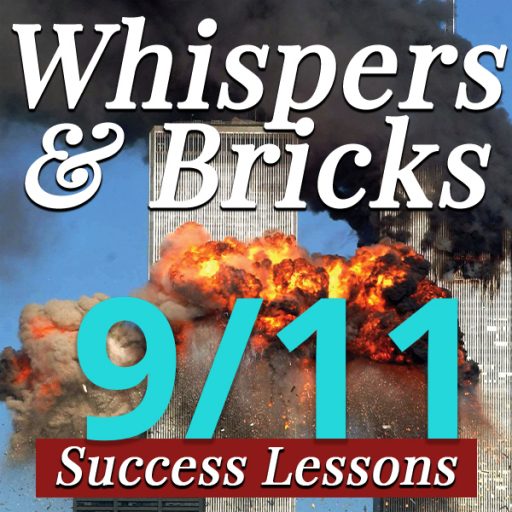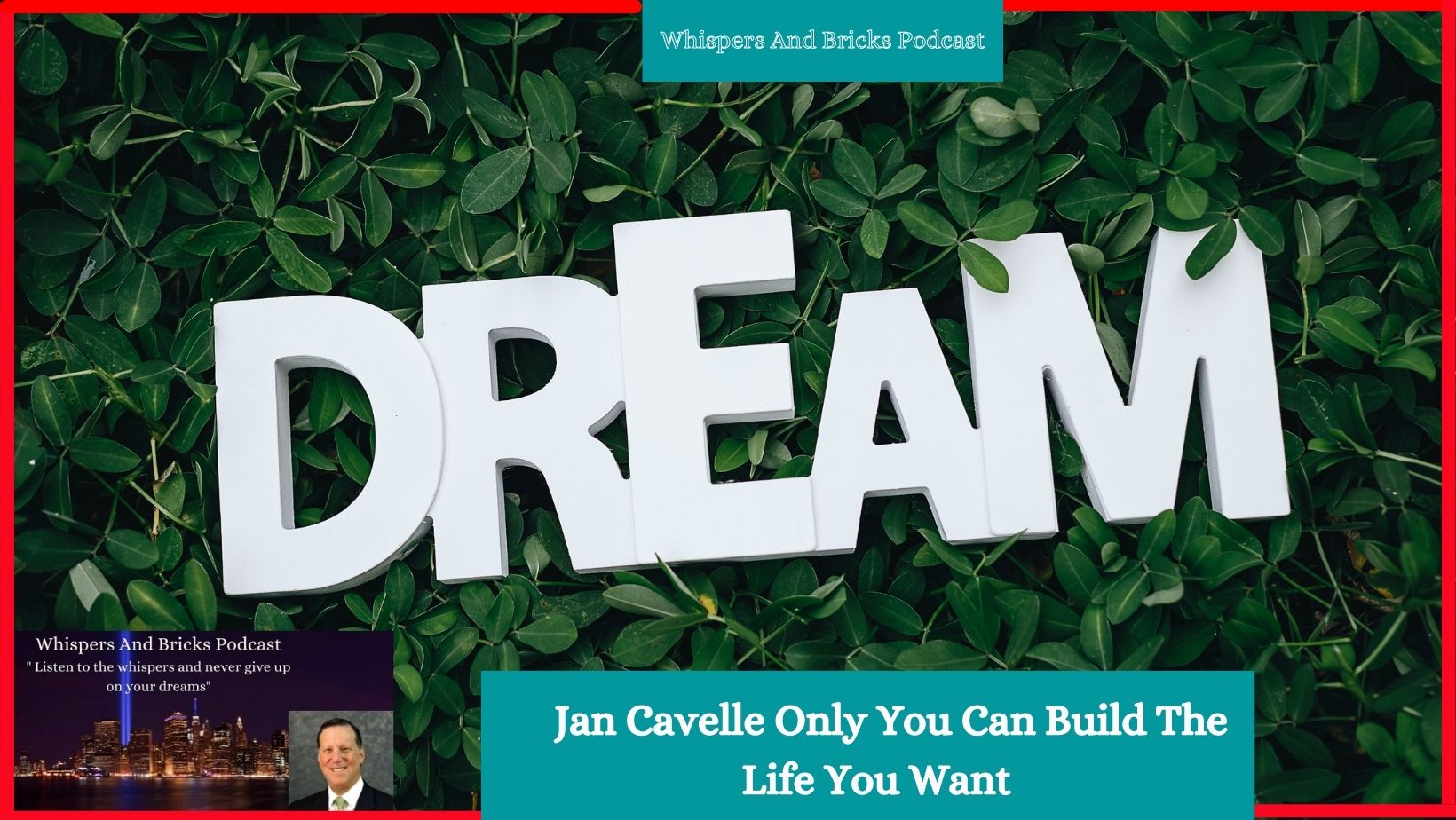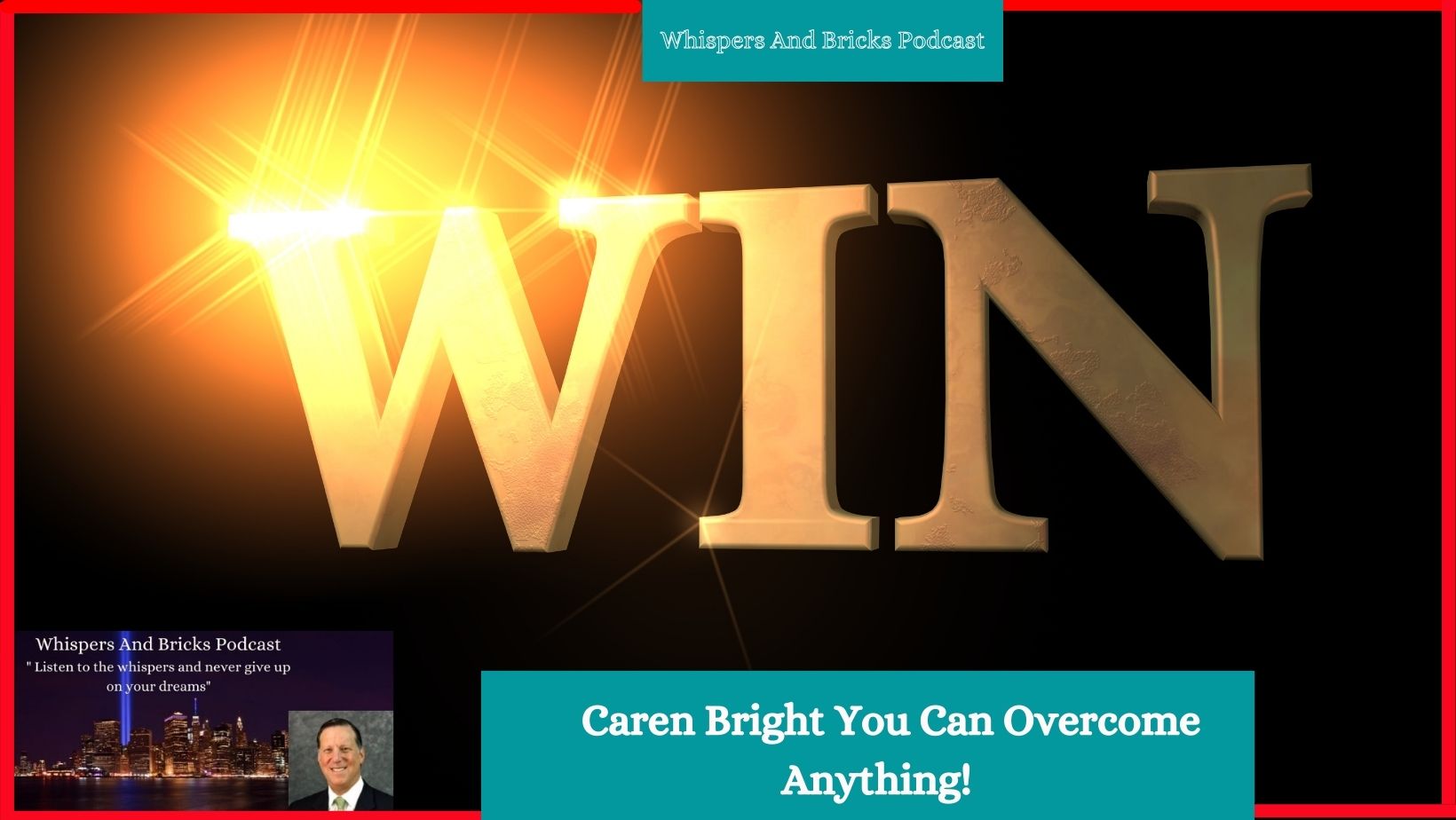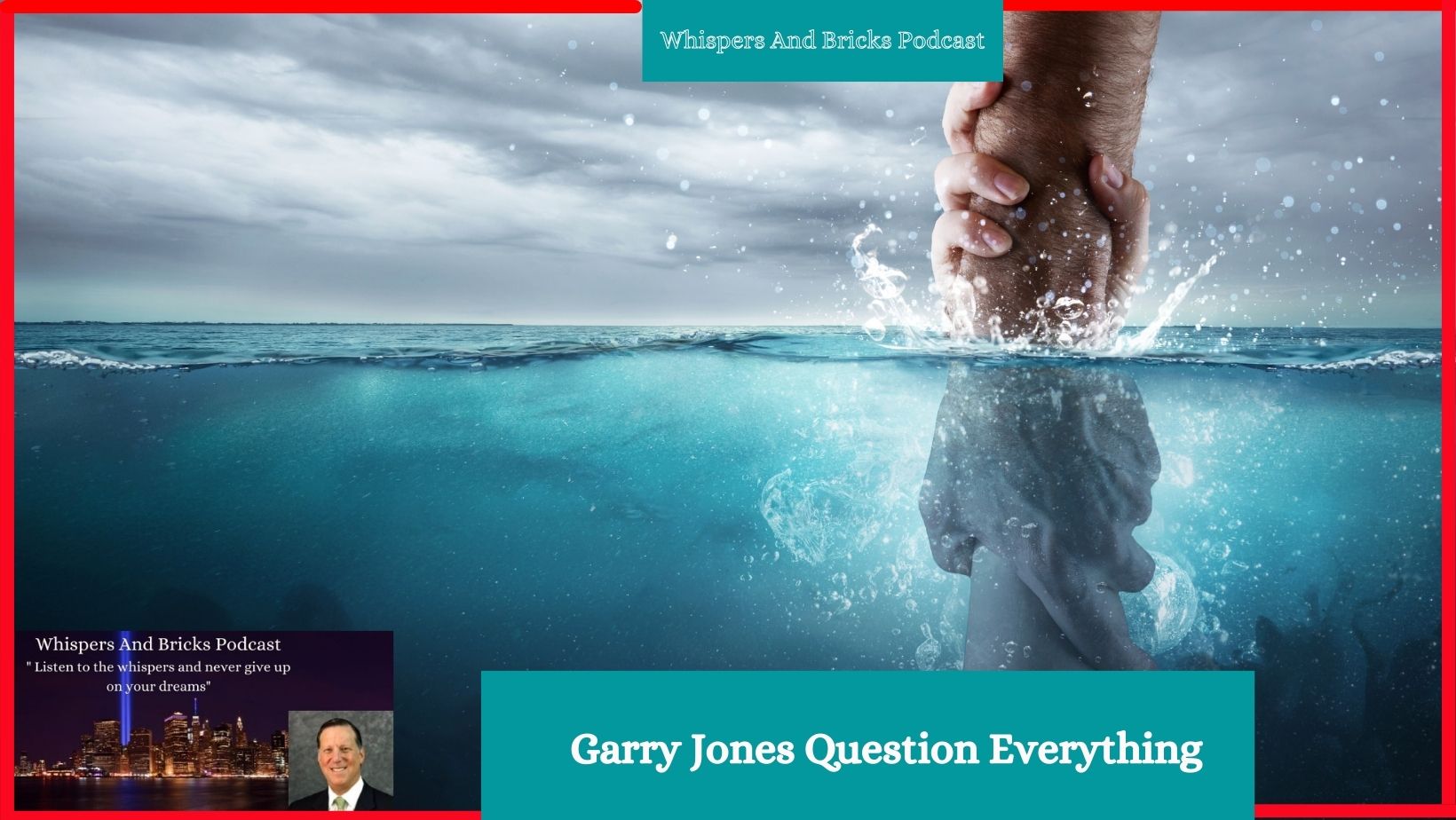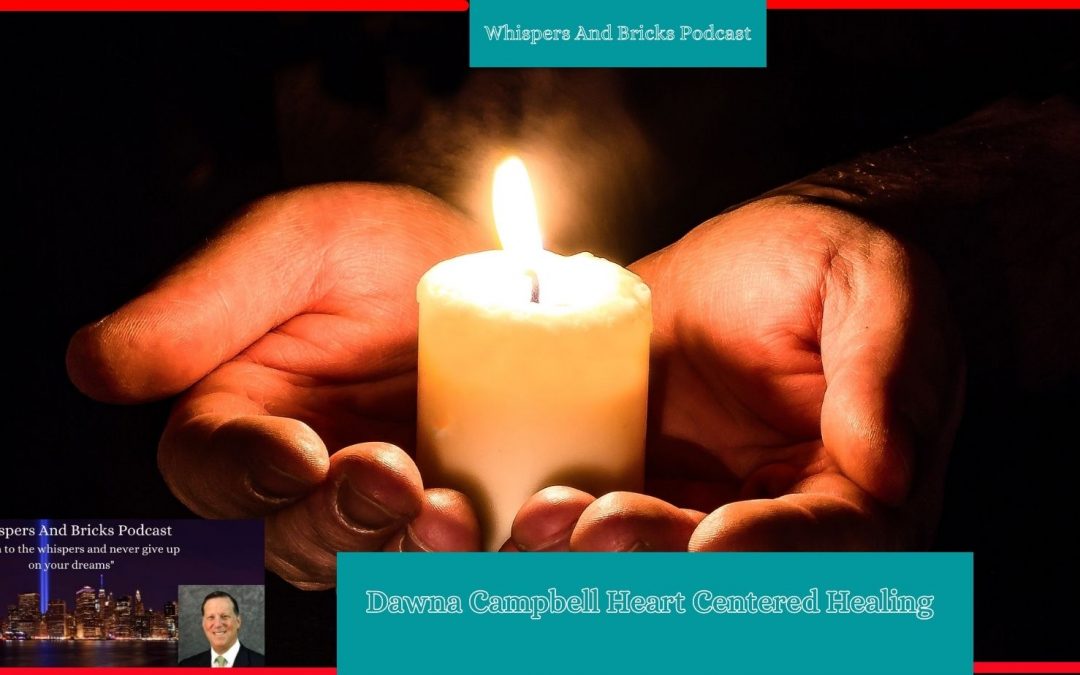
74 Paula Vail The Path to Happiness

Paula Vail The Path To Happiness
Paula Vail The Path to Happiness
Summary:
Paula shares her story from being born premature, to owning a restaurant as a single mother to being an author and reiki healer. She reminds us that we all go through up and downs but it is all part of the journey. It is good to pursue our goals but to remain open to the opportunities that come our way. That we should be grateful for every day. It is a reminder we all need from time to time.
Episode Transcription
Intro Plays
Ari: Welcome to whispers and bricks. My name is Avi show and I’m your host with me today on today’s episode is Paul avail. Paul Paula is the owner slash founder of wellness inspired and wellness inspired publishing. She’s the TV slash radio host of the show, elevating your life with Paul availe. She is also the author of the book, Why am I so happy, which was awarded the Bronze medal in self help books by global Book Awards. She co authored the book America’s leading ladies who positively impact our world, along with Oprah Winfrey and others. She’s an inspirational speaker and prior restaurant owner Paul is a Reiki Master slash teacher in Usui Reiki, Paul has a sincere passion to serve, inspire and support others. She was featured in New York City Times Square by the Continental who’s who organization as a pinnacle professional, and has been featured in and on the cover of multiple magazines. These include recently, Publishers Weekly, speak magazine, and two times in the Women of Distinction magazine for her achievements in business in life. Most recently, she was a watered empowered woman of 2019 and top female professional of 2018 by the International Association of top professionals. Please help me welcome Paula. Val. Paula, how are you?
Paula: Fine. Yeah. So happy and honored to be here with you today. Oh, my gosh.
Ari: Well, thank you. It’s my pleasure. I’m honored that you agreed to come on my show. I really appreciate it. We’re gonna have a lot of fun, we’re gonna do some schmoozing together, we’re gonna hear about your life, you’re going to have some I’m sure inspiration for my audience. And it’s going to be a great, great show. Okay, so let’s let’s dive right in. Okay. Now, after reading your bio, and speaking with you prior to the show, I learned that you have certainly done a lot in your lifetime. Now, as you know, the name of this podcast is whispers and bricks. The Whispers are those voices telling us what the right thing to do is, and they represent the good in life. And the bricks represent the bad things that we go through in life. And let’s be real, everybody gets hit with a brick in their lifetime at some point in time or another sometimes several bricks, sometimes bigger bricks, sometimes smaller bricks, but we all get hit with them. And we also have to listen to the whispers learn how to listen to the whispers, which help us avoid the bricks or come to us as an Well, we all know that life is not a straight line. There are many ups and downs many bumps in the roads. And what might seem like a perfect life most often is not. Now you came into this world with a brick right off the bat. You were born premature. Tell us a little bit about that.
Paula: Yes, I was premature eight weeks. I was less than three pounds. My parents were told that they should not expect me to survive the night. They brought in a priest gave me my maths right?
Ari: Oh my god.
Paula: Yes. And my dear father, this was in Grays Harbor County in Washington State. He said I will not accept that. Put her in an ambulance and take her to Seattle to the Children’s Hospital. And so they did. And they kind of figured out what was going on. I was actually when they tried to feed me I was drowning. Oh MA and it was something was going on. The fluid was going into my lungs. And they operated on me and I think at six months old I weighed seven pounds or something. But anyway, I survived and that put something in me that’s been with me my whole life is I’m grateful for every day. I was meant to be here and I’m going to be grateful for that and be a positive energy in the world really did something to me.
Ari: Absolutely. You know, you know what they say every day. above grounds of good day. Yes. Okay. So we got through that, thank God. All right, but then we get to school, right? What happens in school?
Paula: I was, I was shy, I was very thin, shy. And in junior high high, I was bullied quite a bit. And bullied in school one year, I didn’t even take my coat off. I wouldn’t even take my coat off. Because I was made fun of notes were put on my back, things like that. And dear uncle, dear aunt and uncle who I spend every summer and holiday with he, he helped me through that, and he made me realize that’s, that’s everyone else. And I made the decision one day, I said, love me or don’t, I’m just going to be me. And that really set me free. Wow. And really helped me with that. And it’s really funny, because my whole life I always kind of wondered, why was I picked on though, what did I do wrong? And it was just a few years ago at a high school reunion. A gentleman came up to me and said, Paul, I just want to apologize that I I picked on you in school. And I asked a question, I’d always wanted to know his his why? He said, Because you were really shy and nice. And it was easy. Give me my answer. It wasn’t the unique who I am my you know, it was I was the character type that was easy for them. Yeah, pretty interesting, isn’t it?
Ari: Wow. Absolutely. Absolutely. So you had that little bricks thrown? You got through it. You picked yourself up by the bootstraps. And what do you do you go on to college? Right? You graduate from college? And then instead of becoming an accountant, like you thought you were going to do something else happened? What was that?
Paula: Yes, I worked in restaurants during college, and I started working at Lorenzo’s in Tacoma. When I was finishing up school, and I had it all planned, I was gonna be an accountant, I was gonna have a sign on my porch. It was all planned. But I fell in love with the restaurant business, I fell in love with service. And with that I worked there I was there. 27 years I became the manager. I bought it and we’re I’m going to have to share the story how that happened. But all that it just, it really showed me that you can have a set plan, but discover something else and find a passion you didn’t even know you had. It’s It was amazing.
ari:Absolutely. You know, it’s it’s kind of like my speaking business that grew out of 911. It’s something that I should have really had, I realized that early on my whole life would have been different. Because I found out that I had a natural talent for public speaking. And I said, Man, I wasted like 35 years, because I never knew this. And if I would have known this 35 years ago would have been a completely different ballgame. But so I get what you’re saying that, you know, sometimes the best laid plans, and all of a sudden, something else happens and you go like, wow, I didn’t know I could do this. So tell us more. Tell us more about the restaurant. How did you come to own it?
Paula: Oh, it was amazing. But I do I do want to mention real quick. I adore your book. It’s life changing. I read it in one night. I’m giving copies for Christmas presents. And I want to thank you for that. But yes, I worked through the restaurant. And I loved my customers. I loved working with the employees we had so you know worked hard, but had fun. And it was hard as a mother working that many hours. But occasionally I could bring the kids with me. We had an apartment upstairs. They could have room service. When they got older. They worked with me. But my whole future was Sunday. I’ll own the restaurant the owner and said I can buy it when we retired. And that will that’s what I’m working for. And the kids worked with me. And then I went through another brick. My husband life was great. He loved his job. I was loving running the restaurant, being a girl scout mom and all that and we just bought property built a house and And he had Crohn’s he had had Crohn’s since he was about 19. Well, it acted up. And he had a couple surgeries that took out big pieces of his intestine. And it was very painful. He got addicted to the pain pills, became a different person, added alcohol, and killed himself at 34 Oh, my God was a mother, single mom running a restaurant. And, you know, that was really a chain. It was like, and I went, you know, do I be angry at the rest of my life? Or do I be grateful I had them, you know, I had to make a decision. But those are bricks get thrown at us, you know, and we really do have to go a different direction. So I continued to run the restaurant and was going, the owner was getting ready to retire. He had said, This is what you need for a down payment, not carry the contract. I had saved and saved and saved. And my father helped me some and I and I had what he needed. And I come into the restaurant one day, and there’s a few, a couple gentlemen sitting with them. And he comes to me and he says, I’ve decided I may sell to someone else unless you give me another $100,000 down. Well, oh, I was working minimum wage raising kids. And that was like a million dollars to me. And I didn’t even have a credit card. I had always paid everything. I wrote a check or paid cash. I went to the bank and asked for the loan and they pretty much laughed me out the door and said you want to buy a restaurant little girl. I was heartbroke all those years all. And I just, you know, I sat down and just went It’s just what’s meant to be It’s just what’s meant to be. I just I was heartbroke
Ari: How old were you at the time? How old? Were you?
Paula: In my 30s in my 30s? Okay, yeah, I’d say mid 30s Maybe. And I went to work the next day. And I had so many regular customers. I just adored them all. And we had fun. This one couple that came in a lot. Now he’s they had their favorite booth. And I talked to them about I’m going to be buying the restaurant. You know, I’m excited and, and he he said, Hey, Paula. So what’s going on with the whole restaurant deal? When’s that going to happen? And I must have got a look on my face. Yeah, Said, Paula. What’s going on? Yeah. And I told them, and a couple days later, knocking at the kitchen door was his accountant, with all the paperwork. And that man co signed a loan for me to buy the restaurant.
Ari: No way.
Paula: A customer, I was just their favorite waitress, and a year later, I got him off the loan. But I cannot express what that did for my heart. Unbelievable. And I could tell his accountant thought he was crazy. But to have faith in me and to do so. So our big joke after that, to him in his life was I’m gonna name the booth after him. That really showed me. You know, there are just, there are just some amazing, beautiful people out there. I will never forget that day. Oh, no. And that’s how I was able to purchase the restaurant.
Ari: Wow. Are they still around? Are they still alive?
Paula: Um, no, no. He was a doctor here in our area. And I know he retired and I and I believe he passed like two years ago, right? We’re all nice people here. But never forget it. The things that can you know those whispers and those hugs that can come to us? As well as the bricks. Isn’t it something?
Ari: It really is? Now you went through something else? I think when you were younger. I think you’re about 17 years old. You got real angry with God. How come?
Paula: The dear my dear aunt and uncle. My uncle Ernie and I still have their property in Centralia, Washington where, you know, I spent most of my life and I’m creating a nonprofit Animal Rescue there. But he he just was so dear to me. And he had worked 716 A week his whole life. He was a butcher. I just adored him and my aunt and all these things he was gonna do when he retired six months before retirement, a brain tumor and he passed away. Oh, I was so angry at God for for doing that I’d never I did. I almost committed suicide I almost drove off the road. But you know, it just, it taught me plan on the future. Be responsible and think ahead. But appreciate every day, because tomorrow is not guaranteed. That was a huge lesson that I learned at 17. Wow.
Ari: Wow. So, um, after your husband died, you ultimately you did remarry? Did you not? Yes. And then what happened with the restaurant?
Paula Um, after we remarried, I ran up for a few more years and then had someone interested in buying it and I made the decision to sell it and I did but it was like cutting my arm off and there’s days I still mess it. You know, just not be working as much. Yeah. And of course, I met all my husbands in my restaurant. I never went anywhere else.
Ari: I don’t think I asked you. Do you have any children?
Paula: Yes, I have three children, and three grandchildren and Hello. to two of them. I get I get to do grammie duty one day a week and this month. I’m having them a little more but yeah, i i Oh, I’m to me being a parent is the best thing in my life. To me. It’s the most precious and being a grandparent is so precious. When I was young, I couldn’t wait to be a mom. I was gonna be Mrs. Walton. I couldn’t. Yeah, well, I family’s everything. Wow.
Ari: Well, you know what? You know what I figured out? You know, grandkids are a parent’s revenge on their children. Oh, yeah, I have. I have. I have seven. I have seven grandchildren. And they’re they’re so precious. They really are. But the best thing is you play with them and then you give them back at the end of the day and you go home.
Paula: Yep. I just had my six and nine year old yesterday and we went to Target to buy some Christmas presents for Papa and mommy and daddy. And it was we’re not buying anything for you today. This is for Christmas. And they did they didn’t really go and even look at the toys. Yeah. Oh, we had fun.
Now you became a Reiki practitioner. With all due respect. I don’t even know what that
- Oh my gosh. Well, I’d love to send you some I would.
Ari: What is a rain? What is Reiki?
Paula: And its life. You know, we are lifeforce energy. Our luminous energy field tells our DNA what to do. That’s how powerful it is. Okay. And I learned Reiki 14 years ago for love of a pet the pictures behind me, my white German Shepherd Shotzi. She was ill she had a tumor removed. She was 14. And I learned Reiki and the Reiki helped her so much. I had her two more years, but that’s why I learned it. But it’s actually you just connect with. I also call a prayer modality with source energetically you connect and energy comes through you to let’s say the client or the pat or the situation and it gives positive energy it boosts the immune system. It relieves pain. I have seen so much over the years. Several years ago, a colleague in Oregon won an award for an article they did on Reiki, you know, there was a lot of scientific studies and it shows people given Reiki and boosting their immune system. It’s It’s huge, so it helps with pain. I I’ve had So many different clients over the years and what I’ve seen, but it, it helps with pain. It helps with emotions with trauma, it actually an easy way to describe it is positive energies coming in releasing negative energies, blockages and releasing Nat, which helps the body to itself heal. I just and you can do this long distance as well it’d be goes goes beyond time and space. I mean, you can send I just a friend in New Jersey just had knee surgery, and his left knee is is in so much pain and he asked me to send them right he saw I have a few times now and he just messaged me back yesterday. How much better is nice feeling? I mean, it’s, it’s, it’s really amazing. But a lot of people think well, it’s just you know, pretty woowoo. But really, it’s very, it’s very scientifically based as well. It’s got a lot behind it. I hear so it’s really fascinating. So I’ve really specially in the early years, I did a lot of research and studied it. But then you know how it makes you feel it raises the energy in the room. And yeah, it’s really amazing. Wow.
Ari: So like what are you doing now? I mean, is this is this like a this Reiki? Is this like a full time thing? Are you doing other things you writing your? What are you doing with yourself these days? How do you How are you keeping busy?
Paula: Yeah, well, gosh, yeah. I’m doing my shows my elevating your life show.
That’s what kind of shows that do. What kind of
show podcast and it’s also on radio.
Ari: Oh, you have a podcast? Gee, I wonder who else has a podcast?
Paula: Yeah, you’re gonna be on it. I love it. We’re gonna share each other. And so I’m doing my show, I teach Reiki I do see Reiki clients. And then I have my Grammy time, grandkids. And I did just this year, co author Reiki training manual level, wanting to be beyond wellness, Reiki training. And then I may work on another book next year. But right now I’m just kind of focused on the Reiki and family and that type of things. Right?
Ari: So you said okay, so you just you just said you might work on another book. That means to me that you’ve already written a book?
Paula Well, I’m I’m working on it.
Yeah. No, but you but you’ve written the first book.
Yes, yes. Oh, why am I happy? This is the one that just got the bronze medal by the global ASO sociation, which just blew me away. And the reason I titled this, why am I so happy? Because I would get asked that working at the restaurant. Well, what are you so happy about? Your life must be perfect. No, it’s not perfect. But it’s where the direction I choose to take my thoughts. You know, be angry about this or be grateful about that. And I always had fun at the restaurant. If someone came in and they weren’t in a good mood. I could tell they were I didn’t get irritated. It was a challenge for me to put a smile on their face. How
Ari: I hear you. I hear you. I will tell you, I’ll tell you real quick. I feel the same way. I like to make people smile like to make people laugh. There was one morning when I was you know, you’ll as you know, I worked in the World Trade Center. And I got to the I got to the World Trade Center one morning. And there were these express elevators that went from the lobby up to 78 to the 78th floor. And these were they were massive elevators, huge huge elevators, and an elevator came down and there were a whole bunch of people there and everybody walked in. And what do you normally do when you walk into an elevator? What are most people do? They walk into the elevator and then they turn around to face the door? Right? That’s what most people do. So I let all these people go in ahead of me. All right, and then I walked in I was last one and right behind me the doors closed. But instead of turning around to face the door, I was facing all these people. And as soon as the doors closed, I said you’re probably wondering why I call this meeting that, that was the exact response that I got people just cracked up and you know what they had, at least the start of their day was really, really good. You know, because they started it with a smile. Yeah, so I hear you, I like to make people laugh. I like to make people smile. Okay, so um, so before we go, any any words of wisdom that you have that you’d like to share with my audience?
Paula: What I would say and this is something I say to my my Reiki students, we have, we have to two different avenues here we have in one hand, we have, what we’re striving for, what our goals are, and all the things we’re working for. And those are wonderful. And those are something to pursue. But let’s also remember to have the other hand just wide open to what may manifest what may come to us what connections we might make an open up. So basically, what I say is, have your goals and what you’re working for and what you’re doing. But also keep the door wide open to what you may not realize could be a passion for you one day, because so much is out there. And you know, every day is a new opportunity. And tomorrow, I and I have to say I adore your daily quotes that come in emails, I’m like, yes, yes. Thank you. Every day is a new beginning. And things you’re welcome can come that we did not even imagine. So stay open to those and those messages as you progress and work on what your your goals and your passions are, you know, it’s we got the left hand and the right hand. It’s like two different concepts. And, you know, just walk with both hands open. So that’s what I would say.
Ari: Thank you so much. Those definitely words of wisdom. It’s like, you know, you got to keep the balance. So, Paula, yes. Thanks so much for sharing your story with my audience. Good luck going forward. Enjoy the grandkids. Enjoy life. You’ve been listening to us busy bricks, and I’m your host, Gary shoma. Remember, if you feel like you’re stuck in the mud, like you’re spinning your wheels, wasting time in your career, your business or your life. If you know you’re not enjoying all the success, satisfaction and significance that you desire, then it’s time for you to book a call with me at call with ari.com and check out my whispers and bricks Academy. Until next time, listen to the whispers avoid the bricks and never ever give up on your dreams. Bye for now.
